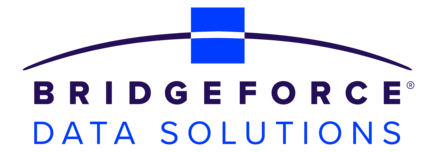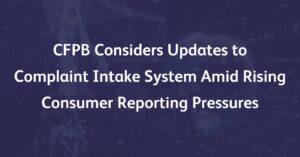At the recent America’s Credit Unions Risk & Compliance Council Conference, Jay Cohenford, our VP of Product Design and AI, presented a practical framework for financial institutions of all sizes to adopt AI responsibly. This framework is based on our team’s ongoing collaboration with AWS to AI-enable our core products and explore new applications of AI and automation in our daily operations.
More specifically, we are piloting our groundbreaking AI-enabled credit bureau dispute solutions, which combine our industry-leading data quality rules with our clients’ procedures, and now offer the ability to interrogate images provided by customers in disputes. We plan to expand pilots to additional customers by this fall, and early results suggest AI-led credit bureau dispute outcomes could significantly outperform traditional methods.
If your organization is ready to explore these innovative AI products and features, don’t hesitate to contact us today.
We’ve summarized the key takeaways from the presentation below, and you can view the full PDF at the bottom the page.
Key Takeaways for Financial Institutions
Start with strong foundations. Assess your people, processes, data, and technology. Highly regulated processes like credit reporting and disputes are ideal starting points since controls and documentation already exist.
Prioritize use cases with measurable success metrics. Focus on opportunities where outcomes can be tracked and risks are well understood. Examples include reducing dispute handling time or improving resolution rates.
Experiment safely before scaling. Use dummy data and small-scale pilots to test feasibility, build momentum, and learn quickly.
Engage stakeholders early. Secure buy-in from compliance, risk, and IT leaders at the proof-of-concept stage. Share progress often to address concerns and ensure adoption.
Use agentic AI for specialized tasks. Narrow-purpose AI agents, such as gathering records, scanning data, or interpreting documents, can be more effective than broad applications.
Expect rapid advances. AI capabilities evolve fast. What seems unworkable today may be practical and cost-effective within months.
Closing Thoughts
AI is already reshaping how financial institutions manage compliance, risk, and efficiency. By focusing on practical, measurable use cases and building stakeholder trust along the way, organizations can capture benefits while protecting against unintended risks.



